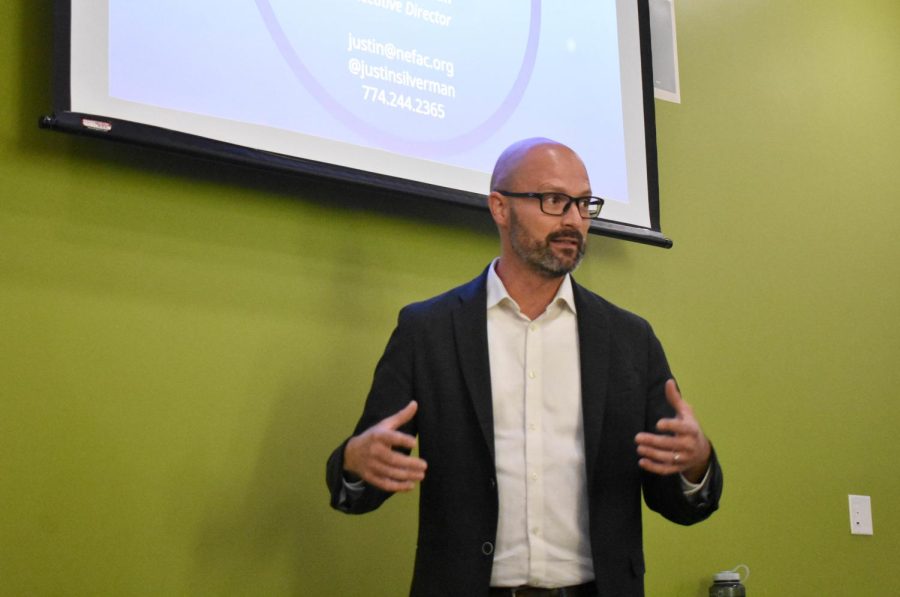On Nov. 15, the University of Massachusetts Journalism Department hosted an interactive presentation, “The First Amendment and The Free Press,” in the Journalism Hub of the Integrative Learning Center. The presentation was run by Justin Silverman, executive director of the New England First Amendment Coalition.
Silverman works as a Massachusetts-based attorney and has experience as a journalist and publisher. Additionally, he is an adjunct professor at the University of Maine School of Law and New England Law.
The New England First Amendment Coalition is a non-profit organization that, according to their website, “defends, promotes and expands public access to government and the work it does … that aspires to advance and protect the five freedoms of the First Amendment, and the principle of the public’s right to know, in Connecticut, Maine, Massachusetts, New Hampshire, Rhode Island and Vermont.”
By definition, the First Amendment of the U.S. Constitution states that: “Congress shall make no law respecting an establishment of religion, or prohibiting the free exercise thereof; or abridging the freedom of speech, or of the press; or the right of the people peaceably to assemble, and to petition the Government for a redress of grievances.”
Silverman discussed a range of topics surrounding the First Amendment. Primarily, focusing on press freedoms and the rights of the media.
“It all started in journalism,” Silverman said. During his undergraduate career at Syracuse University, he worked as news editor for The Daily Orange.
There, he was nominated for both Reporter of the Year and Story of the Year awards at the 1999 Associated Collegiate Press Conference. Additionally, during Silverman’s senior year, he founded a bi-weekly newspaper and website for students.
The presentation began by defining the First Amendment. Silverman cited Bert Neuborne’s book “Madison’s Music: On Reading the First Amendment.” In the book, Neuborne writes that the aspects of First Amendment form “a coherent narrative of democracy instead of a series of unconnected commands.”
“When Madison wrote the First Amendment, he did so in a way where all five freedoms work together to create what, ideally, would be a perfect democracy,” Silverman said.
Silverman then asked: “Why do we need the First Amendment?”
“It’s about accountability and trust,” he said. “The government serves the public, and [we] need to know if that government is acting in the public’s interest.”
He went on to provide event attendees with some complications that may arise when journalists attempt to request public records. “Common challenges are privacy, money, time and security,” Silverman said.
Silverman provided a case study in public record interference with an article titled “Hushing up Block Island Crime” by David Collins. The article details why the Block Island Times stopped routinely printing police logs.
Collins writes, “It was police Chief Vincent Carlone who told me the island newspaper has stopped routinely running the logs. He said he asked them to … it is remarkable to find a community newspaper that doesn’t routinely report police investigations … it is especially shocking to know that this turning a blind eye is apparently being done to accommodate a request from the police chief.”
Silverman also addressed the notion of prior restraint — when the government prevents media that would be published or broadcast, on the grounds that it would be harmful. He referenced the Pentagon Papers, which, according to historian John Prados, were “a body of authoritative information, of inside government deliberations, that demonstrated beyond questioning the criticisms that antiwar activists had been making for years not only were not wrong but, in fact, were not materially different from things that had been argued inside the US government.”
He ended the presentation by addressing the student journalist attendees. “Drop the student prefix … you’re all journalists,” Silverman said. “Know how empowered you are to break these stories.”
Mia Vittimberga can be reached at [email protected] and followed on Twitter @MiaVittimberga.


















